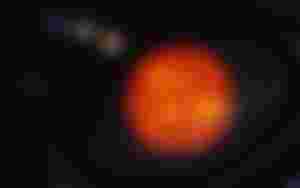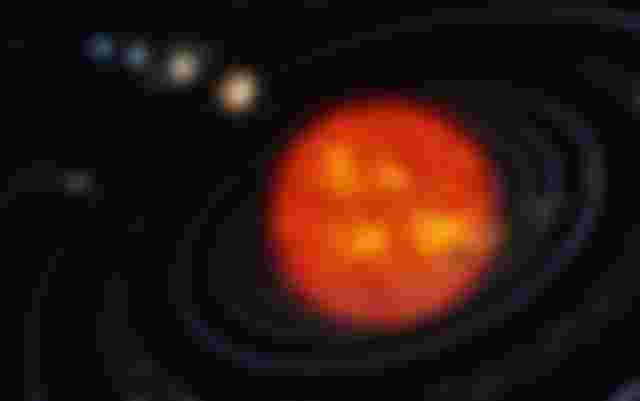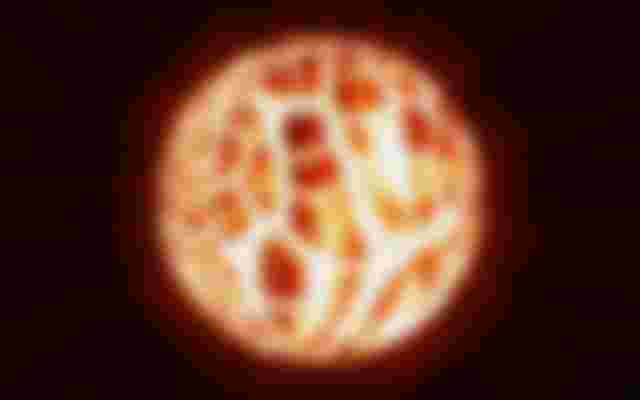The Giant Pressure Cooker in the Universe
When we raise our heads, we see an endless universe, much larger than we can comprehend. So, could this infinite universe be empty? Of course it can't. So much so that the universe is filled with incredible phenomena that we can barely comprehend.
Let's go on a journey in the universe together.
Galactic Furnace

If you've been out in the sun recently, you've probably felt the sun's rays shining on your face. However, despite the heat it emits, this giant ball of hot gas does not actually burn. This is because the term combustion refers to a chemical reaction that involves the rearrangement of electrons in an atom. That is, the element itself does not change, the arrangement of its electrons changes. Composed of hydrogen and helium gases, our sun uses a process called nuclear fission. This means that instead of rearranging the atoms, the nature of the element is changed. Instead of burning hydrogen, the sun turns it into massive amounts of helium and energy. So much so that, according to NASA, the Sun emits about 300 million tons of energy per minute. This is equivalent to exploding 100 billion tons of dynamite every second. But this enormous reaction requires an astronomical amount of heat and pressure. Just like a star-sized pressure cooker… Except that the pressure in this vessel is equal to 250 billion times that of the earth's atmosphere, the temperature in its core is pushed up to an astonishing 15 million degrees. So the Sun may not be burning, but you may want to stay away from a galactic furnace that produces this much heat.
Biggest Star in the Universe

The largest star known to man, UY Scuti's radius is 1700 times larger than the radius of the Sun. Well, if this star is that big, how come it doesn't blind us? Fortunately, UY Scuti is located in the Milky Way galaxy's constellation Scutum, about 5219 light-years from Earth. But despite being so far away, its incredible size makes it different from the small cluster of stars that surround it. This corresponds to a diameter of 1.47 billion miles. For these reasons, even if you were traveling at rocket speed, which is as high as 4.9 miles per second, it would take you almost 10 years to pass through here. Or if you prefer land vehicles, you can reach the other side in 3371 years at a speed of 80 kilometers per hour without stopping. Of course, if your tires last 3371 years.
Planet 9

If you were to travel beyond all known planets in our solar system, you would go to a cold, dark spot in space known as the Kuiper Belt. Unlike the regular, circular orbits of the planets, the orbits of large objects in the Kuiper belt appear somewhat crooked. You can see that the farthest objects are strangely swaying in one direction even though they are in orbit around the Sun. According to the principles of astrophysics, this inequality should be impossible. However, scientists have recently suggested that their crooked orbits might make sense if there's a huge unexplored planet that's oscillating in the opposite direction and stabilizing them. By calculations, this ninth planet should have been about 10 times the mass of the earth. Considering its size, you might ask why we haven't been able to detect this planet in our telescopes yet. This can be explained by its mind-blowing trajectory. Let me give an example for you to understand better. The farthest planet from our sun is Neptune, at an astonishing 2.8 billion miles away, orbiting the sun every 165 years. Planet 9's orbit could be 20 times this distance, and in that case its orbit around the Sun would take an astronomical 10,000 to 20,000 years. However, without concrete images from satellites or telescopes, this ghostly planet remains purely theoretical.
What do you think about this, does such a planet really exist?
You can share your ideas in the comments. Stay with love…
Photos taken from Pixabay.



again as usual your article is too informative ,. I always like to read you coz you always write something valuable and knowledgeful.